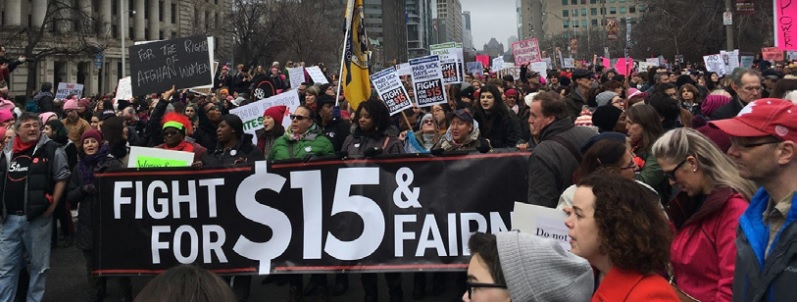One of the most contentious policy debates in recent years is the minimum wage. Opponents of raising the minimum wage say it will result in job losses, because making it more expensive to hire workers means businesses will hire fewer workers. But some supporters of raising the wage floor counter by pointing to studies purporting to show no negative employment effects.
What does the evidence actually say? The most comprehensive review of minimum wage studies, by David Neumark and William Wascher over a decade ago, surveyed 102 studies. They concluded that almost two-thirds of studies indicated negative employment effects, while only eight studies suggested positive employment effects. So while some studies don’t conclude that minimum wages reduce jobs, those studies are the minority.
Furthermore, of the 33 most credible studies in the Neumark and Wascher review, 85 percent indicated negative employment effects. “Moreover, when researchers focus on the least-skilled groups most likely to be adversely affected by minimum wages,” they wrote, “the evidence for disemployment effects seems especially strong.”
The evidence that minimum wages kill jobs is stronger among Canadian studies. In a report for a government-sponsored think tank in 2014, University of Toronto economist Morley Gunderson found that “the Canadian evidence is more in agreement… that a 10 percent increase in the minimum wage reduces employment by about 3 to 6 percent for teens and slightly less for young adults.”
The report also concluded that according to the Canadian evidence, “minimum wages have no effect on reducing poverty and may even exacerbate poverty slightly.” A study published last year by the C.D. Howe Institute similarly concluded that “the existing Canadian evidence points to a larger employment loss from a minimum wage increase than in the US… it is not likely to reduce poverty and may even increase it.”
So consistent is the Canadian evidence that when researchers from the Fraser Institute produced a list of all 20 Canadian minimum wage studies published in academic journals since 1979, they found that the “consensus of these studies is that minimum wage hikes reduce employment opportunities for young workers. Not a single one of these studies contradicts this conclusion.”
Importantly, while some disagreement exists among empirical studies (as the Neumark and Washer review indicated), economic theory is unambiguous that minimum wages cause unemployment. The law of demand states that if something is made more expensive, purchasers will buy less of it. The labour market is no exception to this law.
Why then do some people insist that making it more expensive to employ workers will not reduce the number of workers employed? Don Boudreaux, an economics professor at George Mason University, once suggested that “were there to exist powerful political and ideological forces” that relied upon a public belief that dropping rocks into pools of water does not raise the water level, “there would be no shortage of physicists who conduct and publish studies allegedly offering evidence” to substantiate these claims.
Just as some empirical studies fail to detect the job losses suffered as a result of raising the minimum wage, some researchers might measure the water level of a swimming pool before and after dropping rocks into it and – after controlling for factors like evaporation and swimmers’ activities – fail to detect the effect of the rocks on the water level.
But the law of demand cannot be overturned by a handful of minimum wage studies (which, again, are in the minority) purporting to show no negative employment effects, just as the failure of physicists to detect a rise in the water level would not be sufficient to conclude that dropping rocks into pools of water has no effect. There is no way around the fact that raising the minimum wage puts some workers out of a job.



